- Home
- Families
- Skills for School/Classroom Readiness
- School Readiness. The Whats and Whys
Skills for School/Classroom Readiness
Page Navigation
-
School readiness refers to whether a child is ready to make an easy and successful transition into school. School readiness can be actively facilitated with a little forward planning to ensure that children regularly participate in activities that develops the appropriate skills required to help optimal learning when they start school. While many people think of academics (e.g. writing their name, counting to 10, knowing the colors) as the important school readiness skills, school readiness actually refers to a much broader range of skills. In addition to some academic basics, school readiness skills also include self care (independent toileting and opening lunch boxes), attention and concentration, physical skills (e.g. having the endurance to sit upright for an entire school day), emotional regulation, language skills and play and social skills.
When a child has school readiness difficulties, they might also have difficulties with:
- Self regulation: The ability to obtain, maintain and change one’s emotion, behavior, attention and activity level appropriate for a task or situation in a socially acceptable manner.
- Receptive language (understanding): Comprehension of language.
- Expressive language (using language): The use of language through speech, sign or alternative forms of communication to communicate wants, needs, thoughts and ideas.
- Executive functioning: Higher order reasoning and thinking skills.
- Emotional development/regulation: The ability to perceive emotion, integrate emotion to facilitate thought, understand emotions and to regulate emotions.
- Social skills: Determined by the ability to engage in reciprocal interaction with others (either verbally or non-verbally), to compromise with others, and be able to recognize and follow social norms.
- Planning and sequencing: The sequential multi-step task/activity performance to achieve a well-defined result.
- Self care skills: such as dressing and toileting independently.
- Gross motor skills: Whole body physical skills using the core strength muscles of the trunk, arms, legs such as running, skipping, jumping and ball skills.
- Fine motor skills: Finger and hand skills such as writing, cutting, opening lunch boxes, tying shoelaces.


